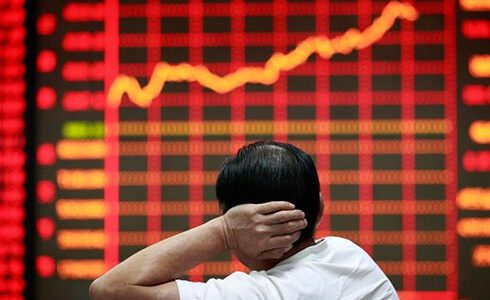
Equity markets of the largest countries in the Asia-Pacific region fell on Friday following similar dynamics in other parts of the world, the only exception was the Hong Kong index.
Stock indices of Western European countries following the session on Thursday fell to multi-month lows, the American Standard & Poor’s 500 ended trading at the lowest level since November 2020 on concerns about the state of the global economy, as well as due to increased geopolitical tensions and expectations of further monetary tightening. – credit policy of a number of major world central banks.
China’s Shanghai Composite index fell 0.55%, to its lowest in almost five months, after losing 5.6% in September. Hong Kong’s Hang Seng edged up 0.3% on Friday, but fell 12% over the month. The fall of both indicators was recorded for the third month in a row.
Business activity in the industrial sector of China in September fell to 48.1 points compared to 49.5 points a month earlier, according to the Purchasing Managers’ Index (PMI), calculated by Caixin Media and S&P Global. This is the lowest level since May. A PMI value above 50 points indicates an increase in activity in the sector, below – its weakening.
Analysts, on average, expected the indicator to remain at the August level, according to Trading Economics.
Meanwhile, a similar official indicator rose to 50.1 points from 49.4 points in August, the State Statistical Office said. The indicator exceeded this level for the first time in three months.
The official PMI for services and construction fell to 50.6 points in September against 52.6 points a month earlier. Consolidated PMI fell to 50.9 points from 51.7 points. Thus, both indicators decreased to the minimum level over the past four months.
On the Hong Kong Stock Exchange, the most significant rise in value was shown by the papers of the developer Country Garden Holdings Co. (+9%), aluminum producer China Hongqiao Group Ltd. (+4.3%), pharmaceutical CSPC Pharmaceutical Group Ltd. (+3.1%), representatives of the financial industry China Construction Bank Corp. (+3%), ICBC (+2.8%) and China Life Insurance Co. (+2.3%), as well as oil China Petroleum & Chemical Corp. (+2.4%).
At the same time, the shares of sports goods manufacturers Li Ning (-6.4%) and Anta Sports Products (-4.3%), Internet company Meituan (-2.7%), automotive BYD (- 3.2%), online retailer JD.com (-1.7%).
The value of the Japanese Nikkei 225 fell 1.8% on Friday. In September, it fell by 7.7%.
The fall leaders were shares of automakers Mazda Motor (-8.2%), Mitsubishi Motors (-8%), Subaru (-6.3%), Nissan Motor (-6.3%).
In addition, the price of securities of the investment technology SoftBank Group (-2.6%), the manufacturer of consoles Nintendo (-3.1%), Fast Retailing Co, the largest clothing retailer in Asia, decreased. (-3.6%), consumer electronics manufacturer Sony (-3.2%).
South Korean index Kospi decreased by 0.7%.
Quotes of securities of one of the world’s largest manufacturers of chips and consumer electronics Samsung Electronics Co. rose 1%, while automaker Hyundai Motor fell 2.8%.
Retail sales in South Korea decreased by 1.8% in August compared to the previous month. The last time the growth rate was recorded in November last year.
Relative to August last year, sales increased by 2.3%, which was the first rise in three months.
On average, experts expected the first indicator to decrease by 0.1%, the second – by 0.8%.
Australia’s S&P/ASX 200 plunged 1.2% to its lowest in more than three months, trailing tech stocks. In September, it fell by more than 7%.
In particular, the share price of Xero Ltd (-4%), Wisetech Global (-5.6%) and Block Inc. decreased. (-5%).
At the same time, securities of gold mining companies, including Silver Lake Resources Ltd., rose in price. (+7.3%), Regis Resources Ltd. (+6.9%), St. Barbara Ltd. (+6.5%), Falcon Metals Ltd. (+5.3%).